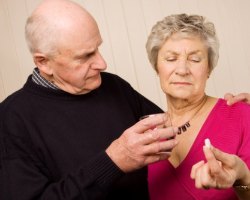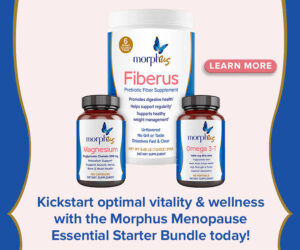
To understand high blood cholesterol it’s important to know more about cholesterol. Cholesterol is a waxy, fat-like substance found in all cells of the body. Your body makes all the cholesterol it needs and uses it for a variety of functions: to build and maintain cell membranes, determine which molecules can pass into cells and which cannot, and help in the production of sex hormones (estrogens and androgens). It is essential to the production of hormones released by the adrenal glands (cortisol, corticosterone, aldosterone and others), aids in the production of bile, converts sunshine to vitamin D, insulates nerve fibres and it is important for the metabolism of fat soluble vitamins (A, D, E and K).
Blood is watery and cholesterol is fatty. Just like oil and water, the two do not mix. To travel in the bloodstream, cholesterol is carried in small packages called lipoproteins. The small packages are made up of fat on the inside and proteins on the outside. Two kinds of lipoproteins carry cholesterol throughout your body and it is important to have healthy levels of both.
Low-density lipoprotein (LDL) cholesterol is sometimes called “bad” cholesterol. It is responsible for the build-up of cholesterol in arteries, which leads to atherosclerosis and heart disease. High-density lipoprotein (HDL) cholesterol is sometimes called “good” cholesterol and leads to less heart disease and less atherosclerosis.
High blood cholesterol on its own does not cause symptoms; many people are unaware that their cholesterol level is too high. Cholesterol can build up in the walls of your arteries (arterial plaque) and over time, this plaque can cause narrowing of the arteries (atherosclerosis).
Narrowing of coronary arteries due to plaque can slow down or stop blood flow to the heart. The amount of oxygen-rich blood is decreased which leads to coronary heart disease (CHD). When the heart does not receive enough oxygen-rich blood it can lead to chest pain and heart attack. If there is decreased blood flow to the brain it can lead to a stroke.
To manage cholesterol effectively it is important to understand the role of the liver in relation to cholesterol. The cells, intestines and liver make about a gram of cholesterol every day. The average healthy adult has about 150 grams (5 ounces) in their body, about enough to fill a wine glass. HDL helps remove excessive cholesterol from the body by transporting it to the liver for its breakdown and excretion and the liver also synthesizes bile acids from cholesterol.
The drugs that doctors use to treat high cholesterol are called statins. They are-sold under a variety of names including: Lipitor (atorvastatin), Zocor (simvastatin), Mevacor (lovastatin) and Pravachol (pravastatin).
Statins improve blood cholesterol levels primarily by inhibiting a liver enzyme called HMG Co-A reductase. This reduces the liver's ability to make cholesterol. However there can be dangerous side effects of statin drugs including:
- nausea
- gas
- stomach upset
- headache
- dizziness
- rash
- sleep disturbances
- difficulty with concentration or thought
- elevations in liver enzymes
- muscle weakness and pain (sufficient muscle damage can result in kidney failure or death)
- some reports suggest a slight increase in the risk of cancer.
The good news is high blood cholesterol is largely preventable and lifestyle changes are the first line of defence. You can lower cholesterol without drugs by doing the following:
- Improve your diet (whole grains, fruits and veggies, fish, and lean cuts of meat).
- Lose excess weight.
- Increase your physical activity.
- Quit Smoking
- Support your liver through cleansing (there are good liver cleanses at your local health food store).
Here are some supplements that may also help:
Red yeast rice extract: This fermented food has been shown to lower cholesterol as much as a statin. Work closely with your doctor to find the right dosage.
Niacin: This form of vitamin B3 boosts HDL (“good”) cholesterol by 15 to 35 percent. It also lowers both LDL (“bad”) cholesterol and triglycerides (another heart disease–related fat in the blood).
Fiber: Clinical studies have shown that consuming 10 to 25 grams of soluble fiber a day can lower cholesterol by 18%. The benefits are related to its gel-forming nature. Soluble fiber breaks down as it passes through the digestive tract. It forms a gel that traps substances related to high cholesterol and reduces the absorption of cholesterol into the bloodstream.
Fish oil: With its high levels of omega-3 fatty acids, fish oil has been shown to reduce the uptake of triglycerides in the body. Long chain polyunsaturated fatty acids found in fish oil have anti-inflammatory properties. They have been shown to: lower LDL cholesterol, increase HDL cholesterol, lower triglycerides and have a blood-thinning effect. In fact, the American Heart Association recommends that people with high triglycerides take two tofour grams of fish oil supplements daily.
Glucomanann: These vegetable fibers (from the Asian plant konjac) lower cholesterol by absorbing the bile acids in your intestines. After digestion your body pulls cholesterol from your bloodstream to replenish its store of bile acids. Take five to 10 grams daily.
Sytrinol: Research published in the journal Alternative Therapies found that taking this supplement daily reduced total cholesterol levels by 20 to 30 percent.
Now that you have more knowledge about cholesterol, you have the power to control it naturally.
http://www.medicinenet.com/script/main/art.asp?articlekey=52963 – accessed 27 Aug 10
http://www.medicalnewstoday.com/articles/9152.php – accessed 27 Aug 10
30 August 2010










